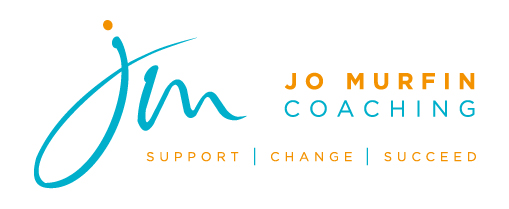
Six tips for career change at any age
What is the best age to change your career?
People change career at all ages. We all have natural strengths we can build on throughout our life. Six tips for career change at any age.
Six tips for career change at any age.
Tip 1 Build confidence in your abilities
What you tell yourself, your internal self-talk, can have a huge influence on how you feel, your behaviour and how confident you are in situations, for example an interview. If you can learn to notice your internal self-talk you can begin to change your relationship with any negative talk.
It is likely that you make certain assumptions about yourself, your abilities and what a potential new employer is looking for. These assumptions fuel your self-talk and the negative ones will impact on your confidence and narrow your thinking. They may stop you from taking any action at all.
So what can you do? You can shift your thinking away from negative assumptions to a positive fact-based view. Here’s some ideas to get you started.
Be honest about the assumption or belief that’s blocking you, for example ‘My skills are out of date’ or ‘I don’t have enough experience’.
Think of one thing that makes this assumption or belief untrue, for example ‘I recently did a training course’ or ‘I have skills that could transfer to a new sector’.
As you begin to think of new things you’ve done, for example working on a project or learning something, write it down as it could be the starting point of a new CV.
Tip 2 Know your worth
If you know your worth you are more likely to have the confidence to try something new. Building a picture of your strengths can contribute to your feeling of worth and is a good starting point.
Strengths are your natural qualities, often used in all areas of your life without you even realising. The next time something goes well, pause and ask yourself these questions.
What did I do to make it a success?
Which of my natural strengths did I use?
Which of my skills, knowledge and experience did I use?
Think about how you can use your strengths, skills, knowledge and experience in different settings. If you record the answers to these questions each time something goes well you will begin to see what you have to offer a potential employer.
Tip 3 Consider what success looks like to you
How you define your own success can have an impact on your career choices. Success might mean something completely different to you now than it did previously.
The definition of a successful career or successful life will be different for you than it is for your neighbour or a family member. To help you to define what success looks like to you, get going by thinking in the short term before moving to longer term success.
What makes you think ‘Hurray! I’m so glad I did that’?
What makes you think ‘That was a really great day’?
In the longer term you may want to have more time to spend with friends or family. Learning and development opportunities could be important to you. You might feel that making a difference is a priority.
What is important to you and makes you happy?
Tip 4 View your possible futures through a different lens
Career change can feel overwhelming. Many people debate the best way to find your passion. For some people the passion they want to develop into a career is clear. For others it is difficult to see how to convert hobbies and interests into paid work. A good place to begin is to think about what you love and what you care about, not just in work but in all aspects of your life.
What grabs your attention?
It could be online, in the media, nature, art, music, anything that appeals to you.
What energises you and gets your commitment?
Become consciously aware of how you like to spend your time. Can you see a pattern? Noticing things outside of the work environment will help you to expand your outlook on what possible futures are available.
Tip 5 Focus your time and energy
Reflect: If you are considering career change take some time to think about what you need in a new role.
What has prompted you to think about making a change?
Reflect on what was not right for you in your previous or current role. Be honest with yourself and consider how likely it is that those things will be right for you in a new environment.
Focus: Think about how you define your success and what energises you.
What are the essentials for your life going forward?
The things you want and need in your new career are a good starting point for focusing your search.
Act: Start with small steps that feel achievable.
How can you build on your knowledge, skills and experience to transfer to a new sector and job market?
You could try volunteering, joining a group or learning something new.
Can you contact someone you admire or who does something that interests you to find out more?
Be curious and love to learn.
Tip 6 Show yourself in the best light
Recruiters often tell us we need to make a positive impact in the first few seconds. Whether you are writing a CV or arriving for an interview, it’s a good idea to get into the habit of showing yourself in the best light.
As you start to look for a new job or career change have a short written profile and verbal elevator pitch prepared. You never know who you’ll meet.
What is an elevator pitch?
Imagine you are in a lift, someone from your ideal organisation steps in and says ‘What are you looking for?’
You have got the time it takes to travel three floors to tell them.
You could include the problem you solve, the value you bring, what you’ve already discovered and what you’re aiming for in the future.
Try saying it out loud or recording yourself to see how it sounds and feels. Sharing with friends or family will help you to refine your delivery.
If you write it down you can then adapt your pitch for a job application, covering letter or the introduction section of your CV.
What next?
The ideas above can help you to shift your thinking pattern to a can-do approach.
- Improve your confidence in your abilities so you can know your worth.
- Think outside your current situation so you can widen your search.
- Build your self-belief so you can start to act.
What one small step could you take today?
Find out how career coaching can help you – click here for my Career Coaching page
